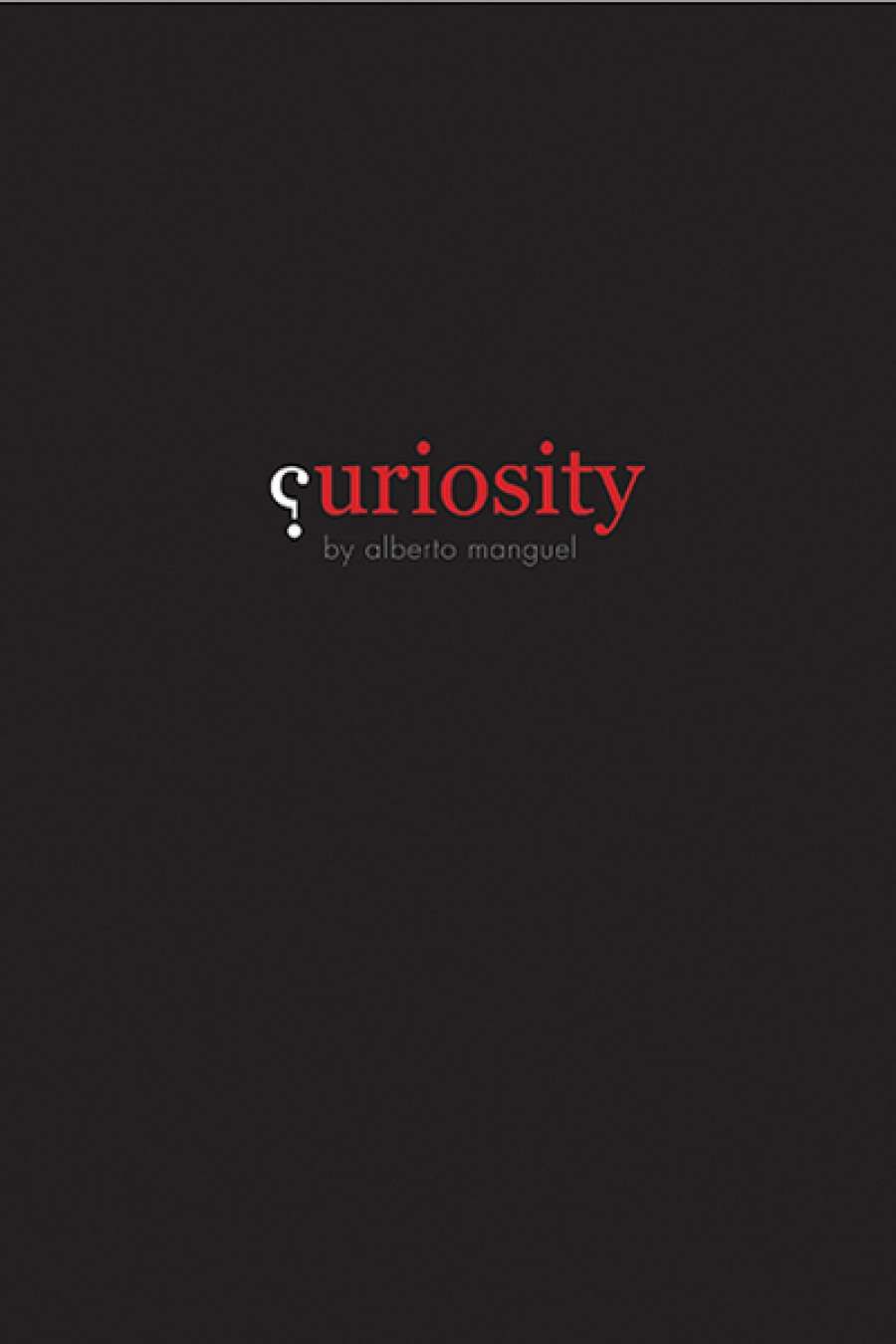
- Free Article: No
- Contents Category: Literary Studies
- Custom Article Title: Andrea Goldsmith reviews 'Curiosity' by Alberto Manguel
- Book 1 Title: Curiosity
- Book 1 Biblio: Yale University Press (Footprint), $44.95 hb, 377 pp, 9780300184785
The first type of reader seeks control of the material; the second, although no less hungry for understanding, can tolerate the mystery of the not-yet-known (and perhaps never to be fully known) and the uncertainties of an intellectual quest without a plot.
The capaciousness of Manguel’s curiosity, his voracious reading, and his eagerness to share both with his readers are simultaneously wonderful and daunting. This is old news to those familiar with Manguel’s earlier work. With an author who can leap from the mid-thirteenth-century Spanish scholar Abraham Abulafia to Borges in a single paragraph, any attempt to control the material is counter-productive. Too much in the way of analysis somehow annuls the meaning and sense of understanding that arises from this material. Trust Manguel: in A History of Reading (1996), A Reading Diary (2004), The City of Words (2007), and A Reader on Reading (which I reviewed in ABR, May 2010), he has proved to be not simply a reliable guide, but the best there is outside Dante’s first circle of Hell.
‘This is a journey without an itinerary. A risky odyssey, it is impossible to anticipate where Manguel is heading’
Manguel, driven by his own ravening curiosity, ranges here, there and everywhere in Curiosity, so it is somewhat amusing that he adheres to a strict format in the structure of his latest book. It is comprised of seventeen chapters, each beginning with a full-page illustration depicting a woodcut from the 1487 printing of the Commedia (with commentary by Cristoforo Landino). I am wedded to Gustave Doré’s illustrations to Dante; their detail and lyricism form a perfect duet with the poem. These fifteenth-century woodcuts do not speak to me in the same way; they simply do not depict the terrible horrors that are related in the Inferno, nor the sublime joys of Paradiso. I am curious as to why Manguel chose them over Doré’s plates. Sometimes the connection between the particular canto from the Commedia and the chapter question is obvious, sometimes it becomes clear by the end of the chapter, and on other occasions a second or third reading will be required. Understandings surface when one reads Manguel.
 Alberto Manguel
Alberto Manguel
The text of each chapter begins with a page or two of personal material: a happening from Manguel’s childhood, a recent illness, sexual discrimination in his childhood books (Anne of Green Gables for girls, The Coral Island for boys), Argentina’s dirty war, the economic crisis in Argentina in 2006, concern over the environment, animals, injustice in the world. Following the personal snippet are approximately ten pages during which Manguel wanders through art and literature, gathering material that enhances and elaborates on the chapter question. The dynamic is reminiscent of musical improvisation.
‘The dynamic is reminiscent of musical improvisation’
Questions, as Manguel makes clear, are far more saturated with meaning than answers. Curiosity is short on answers. What it has are intellectual explorations triggered by all the crucial questions that comprise the human project; indeed, most of the chapter questions have inspired entire schools of philosophy. No précis nor synopsis would do this book justice. Suffice it to say that for readers of Manguel, his favourites are here – Montaigne, Plato, Alice, Don Quixote – and his customary concerns: how we make sense of the world, how we can understand one another. There are many delights. In the chapter ‘What Are We Doing Here?’ Manguel presents Dante as an environmentalist (with a touch of Paganism) and the Commedia as an environmentalist tract. And surprising thoughts. After reading his account of Nimrod and the building of the Tower of Babel, atheist that I am, I found myself thinking that God made a big mistake: that he should have found a different punishment for the people’s heresy, anything but the confounding of language and meaning. How much more difficult it would be for hatred, prejudice, brutality, and corruption to occur if we shared a common language.
The last two chapters of Curiosity, ‘Why Do Things Happen?’ and ‘What Is True?’ represent, at least to me, Manguel’s narrative ascent into paradise. As I closed the book, I felt a little as Dante did when brought into the presence of his Beatrice.


Comments powered by CComment